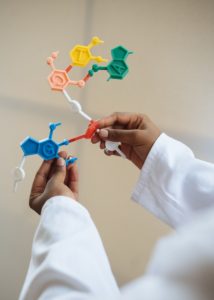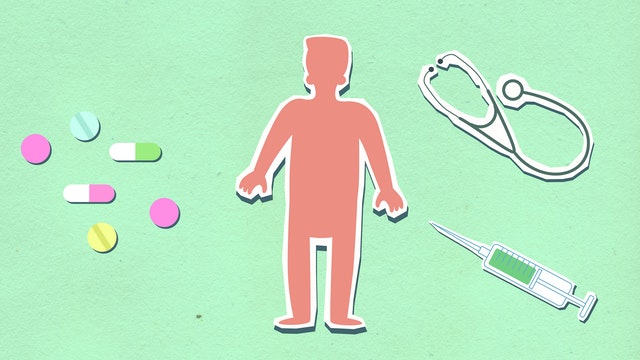Introduction To The World Of Nutraceuticals
Nutraceuticals are a form of new-age science and are rapidly emerging and gaining popularity in the sector of medicine and health.
Many doctors, nutritionists, and health care workers have started opting for nutraceuticals as a remedy for various ailments and health problems.
What are Nutraceuticals?

The word nutraceuticals are framed using two words- Nutrition and pharmaceutical.
This means nutrition that aids in the growth of the body and also essential in the prevention of diseases. Nutraceuticals are a form of nutrition that not only gives us health benefits but also medical benefits and helps in preventing or treatment of diseases.
Nutraceuticals need not always be associated with food. They could also be termed as products that are extracted and isolated from foods and are further sold in medicinal forms like supplements.
Another definition of nutraceuticals states that nutraceuticals can be termed as pharmaceutical forms, pills, capsules, powders, and syrups that contain essential bioactive compounds from food as active principles.
Bioactive phytochemicals are a very important and significant source of ingredients in nutraceuticals.
The term nutraceutical may be new but unknowingly, people have been using and counting on it for ages.
Like nutrients found in various kinds of berries have been used by the ancient Chinese as a medicine to protect the liver, strengthen weak muscles, and attain a longer life.
Indians have used echinacea to treat poisonous insect bites and wounds, toothaches, a few communicable diseases, sore throats, and headaches. The same remedy was used by many other ancient tribes as well.
Fruits and vegetables contain high levels of bioactive phytochemicals, which makes them provide desired health benefits. The advantages are beyond nutrition and can help reduce the risk of developing chronic illness.
Understanding Nutraceuticals Better

Flavonoids, a class of bioactive – are found in a large variety of foods like onions, apples, many berries, and leafy vegetables.
Flavonoids have been proven to protect the body against geriatric conditions and help keep the cardiovascular system healthy.
Another bioactive compound is known as glucosinolates, which are found in cruciferous vegetables like brussels sprouts and cabbages – helps in reducing the risk of cancer and improves vascular health.
A class of plant natural products known as isoprenoids that are generally found in potatoes, peppers, and tomatoes – are known to provide high bioactive that can be used to produce antibiotics, anti-inflammatory, and anti-cancer agents.
Lutein and zeaxanthin – found largely in green leafy vegetables like broccoli and kale, have been proven to reduce the risk of cataracts in old age patients.
Beta carotene, a compound found majorly in carrots, has been known to protect the skin from the harmful ultraviolet rays from the sun as well as keep the skin healthy and glowing.
Red-colored fruits and vegetables contain lycopene, which gives them their color. This compound is said to reduce the risk of prostate cancer in males and has been known to build immunity.
Classification Of Nutraceuticals

Nutraceuticals are most commonly categorized followingly; functional food. Dietary supplements, medicinal foods, and farmaceuticals.
Functional foods are a category of foods that include whole foods with fortified or enhanced components related to diet, which help in reducing the risk of chronic diseases and help provide health benefits.
Dietary supplements constitute any product that contains nutrients abstracted from food products and are made into a concentrated form like liquids, pills, capsules, or powders.
The regulation of dietary supplements is different from that of other drugs and food products.
Medicinal foods are to be administered under the guidance of a certified health practitioner like Health coaches, nutritionists, or even doctors. These kinds of foods are prepared for special cases and are given for specific dietary preferences.
Farmaceuticals are products or components that are medically valuable and are made with the help of modern, modified agricultural techniques.
How Can We Benefit From Nutraceuticals?

Every time we feel sick or slightly uneasy health-wise, we rush to our medicine cabinet and pop an antibiotic or any other over-the-counter drug, not knowing what harm it may cause to the body.
There is no doubt that drugs have been known to provide relief from illness and other painful conditions, but the effects of drugs have never been long-lasting. Also, these drugs cause multiple side effects on our bodies as well as the brain.
On the other hand, nutraceuticals are said to have a more permanent effect on the body, though they take a bit longer to start working. Side effects of nutraceuticals are rare and cause no damage to any body part, as such
Nutraceuticals have been receiving recognition recently, as being beneficial in heart diseases, obesity, diabetes, cancer, osteoporosis, and many other chronic degenerative diseases such as arthritis, and muscular myopathies.
Nutraceuticals have a lot of health benefits that have been proven and their consumption within the recommended dietary intake can help keep the disease at bay and enable everyone to maintain overall good health.
The Bottomline
Although nutraceuticals have promising and significant health benefits, it is recommended to consult a professional before starting a course in case of a disease or ailment.
Self-diagnosis might be harmful and can cause adverse effects.

